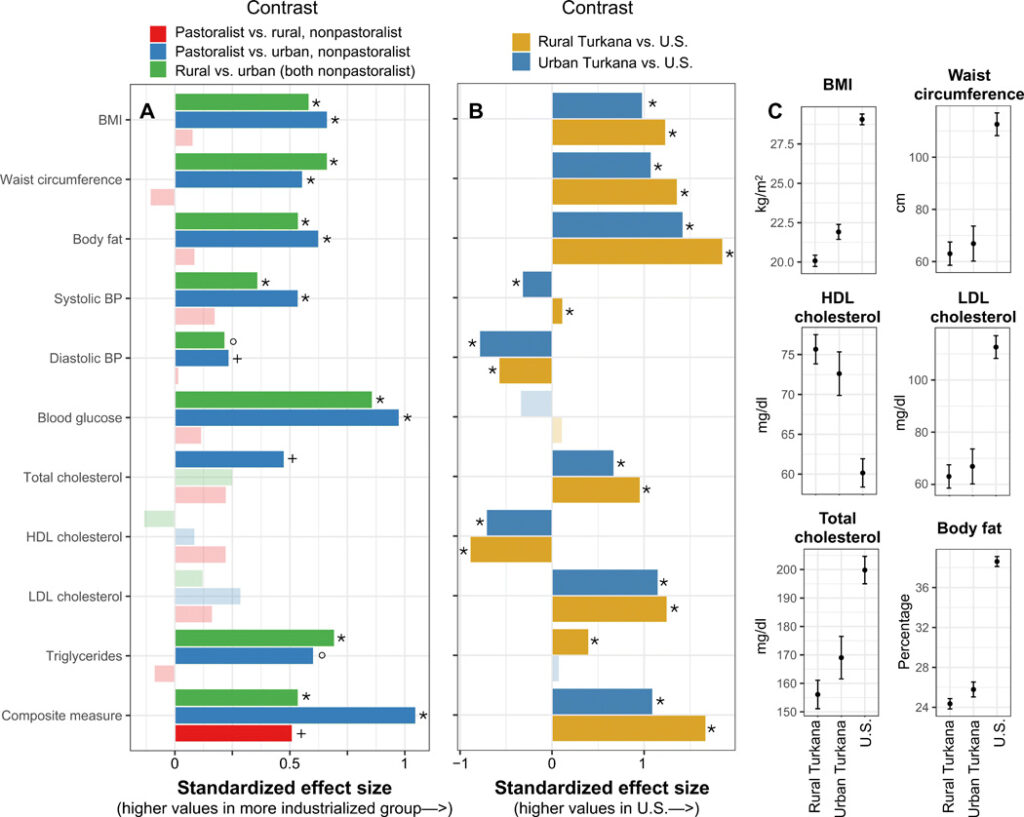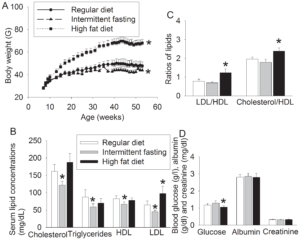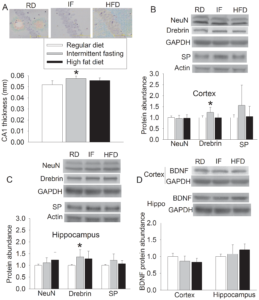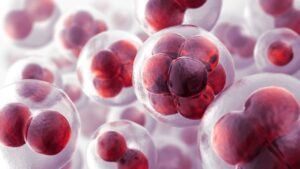I want to talk a bit about fasting. I always hear this negative conception of it. Many people just do not understand how it works at even a basic level. I have been into fasting for about 5 years now. I got into it before it had slowly become almost a diet “fad.” I have experienced every different type of reaction when talking about it which motivated me to do this article. Before continuing, I want to clarify that we are going to mainly be talking about intermittent fasting (IF). This is the ‘time restricted eating’ you may have heard of. Usually one will choose a “window” of 8 hours to eat during every day. IF is not a water fast, it is not a religious based concept, it is not going a week without food. I just want to clear this up out of the get go. Intermittent fasting is the topic of this article and we will be going into extreme depth for anyone curious or uneducated on IF.
Intermittent Fasting (IF)
Like I mentioned above, IF is just reducing the amount of time in the day you can be eating. It is so simple. There is nothing more to it. People will decide what amount of time they want to not be taking in food. This includes the time you are asleep making it easy to do. For example, I would wake up and not eat breakfast or lunch. Then would begin eating normally from 1p.m.-7p.m. this is a 6-hour window. Side note, breakfast literally means to break your FAST and we do not want that, so we are skipping it. This fasting concept is engraved in even our daily language. The tricky part of IF is realizing that everything has calories. In our 18-hour fasting period, used from my example above, there should be 0 calories taken in. Black coffee in the morning tends to be allowed because it is extremely low in calories and infused in many people morning routine. In technicality, roughly 50 calories can be taken in while staying in a fasted state. I would not go tip toeing around that mark while fasting though to avoid ruining your fast. That is the idea of intermittent fasting.

Misconceptions
I just wanted to touch on the most common misconceptions on the topic that will be answered throughout the article. I will be playing devils advocate here.
IF is bad for people that are older because it is stressful for the body. This is just wrong. That is like saying working out is bad to do as you get older because it stresses the muscle cells. Proper stress is what cause a change and a strengthening in the human bodies system. Why do you get a vaccine? Those with high blood pressure or even diabetes are the ones to benefit most.
You can eat anything you want in your window of time because you will just burn it off through your next fast. Sure, this can be true in a slight manor, but always eat a healthy diet. Avoid refined carbs and processed food always. Do not binge.
Fasting is a perfect lifestyle for everyone. Honestly, almost everyone can benefit from a time restricted diet. Athletes, elderly, everyone. However, there is one circumstance I would avoid, young children or adolescence in the growing phases of life should be eating as they need to grow. Do not go all crazy fitness parent on your kid when they are growing. Let them eat and get strong. Steer kids towards healthy food. That does not mean whole grains. This could be the first time anyone has said whole food often are not good for you, but you would be surprised. These grains are not good for you or anyone even though the whole world seems to think so. I was even taught in school textbooks about how amazing they are. NOPE. I will link my article HERE on the industries lies about sugars, fats, and inflammatory grains etc.
IF will slow your metabolism. This is the worst thing I hear. There are so many misconceptions on metabolism it is hard to figure out what is going on. This is specific towards meal frequency. An author for Healthline magazine said it best here, “Eating six 500-calorie meals has the same effect as eating three 1,000-calorie meals. Given an average TEF of 10%, you will burn 300 calories in both cases. Numerous studies demonstrate that increasing or decreasing meal frequency does not affect total calories burned” TEF is thermal effect of food. It is about how many calories not when you take in those calories.
You lose muscle when doing Intermittent fasting. Nope. It is better than regular calorie restriction when it comes to maintaining muscle mass (1). In any case of restricting diet, there will be the possibility of losing some muscle mass right away.
There are undoubtably numerous more ridiculous ideas out there but those are the most common and most annoying ones I get asked about.
History
To begin to understand the reason why IF makes sense scientifically, we must quickly jump back in time. Most fad diets start out with a genuinely good idea, but as they grow in popularity, they tend to get twisted, and the original concept is lost. Lucky for IF it has been around for thousands of years and is written in ancestral lifestyle. Our bodies are not exactly tuned to be fed 24/7. Therefore, we have this amazing ability to store fat. Fat in the body is just energy saved from meals or excess calories to be used later when there is no food. The issue is in today’s modern diet where we never hit that point of not having food in front of us. A buildup of adipose tissue generates in the body. Do this for years and years and your body will happily burn the glucose and carbs from your 3 meals, plus snacks, during the day rather than the fat you have stored up. You can argue this is just the issue of intake vs. expenditure and you would be correct too, but we will touch on that later. Into the history of humans, we were hunters and gatherers for years and years. As a human body does, it adapts, or evolution occurs. These hunters and gatherers needed to wake up and go hunt for food. They did not wake up and have a “balanced breakfast”, they woke up and got to work searching and hunting, so that they could feed their families etc. If the body was not made to run exceptionally well on fats, then we would have died off years ago as a species.
The Turkana
While researching on how humans have adapted to go without food and the history, I ran across this interesting research article. This group of scientists wanted to try and get some data to support this idea of how the diet has changed and how it has affected the human body. The abstract is listed below. Amanda J. Lea, et al wrote in Science Advances about their research project:
The “mismatch” between evolved human physiology and Western lifestyles is thought to explain the current epidemic of cardiovascular disease (CVD) in industrialized societies. However, this hypothesis has been difficult to test because few populations concurrently span ancestral and modern lifestyles. To address this gap, we collected interview and biomarker data from individuals of Turkana ancestry who practice subsistence-level, nomadic pastoralism (the ancestral way of life for this group), as well as individuals who no longer practice pastoralism and live-in urban areas. We found that Turkana who move to cities exhibit poor cardiometabolic health, partially because of a shift toward “Western diets” high in refined carbohydrates.

Figure 1 – Results of Lea Study
The Turkana lived more so like ancestral humans and were healthy, until moving into the western style life. In this study, the authors focused a bit more on CVD or cardiovascular disease. Nonetheless, this is still very valuable info because obesity and high adipose tissue accumulation is a direct causation to CVD. I understand going back to the evolution of man and how humans lived then may not be that exciting. It all may seem a bit extreme and you may think, “We don’t live like that anymore for a reason,” or something along those lines, and yes that is very true. Almost everything about a person is instinctual and evolutionary. That is why I really found this to be valuable in the argument that intermittent fasting has become.
Science
When it comes to any sort of science or research it unfortunately happens that many sources like to skew results in favor of certain preferred results and of course we need to realize this in everything we read on the internet. Also, when it comes to IF, there is very limited research on specific human groups or at least not long-term research available. There are extensive animal research studies that have been published. Animals, like mice, are not humans. Note though, most all research is done on animals to begin with because certain ones offer very similar internal systems to experiment with.
Mice Studies
To start off I want to reference a study done on mice by Liaoliao Li, et al. The authors wrote in their journal title, Chronic Intermittent Fasting Improves Cognitive Functions and Brain Structures in Mice, about their results with testing regular diet, high fat diet, and fasted mice cognitive function, blood work, and protein levels. The findings were very interesting. Mice tend to be hyper responders as compared to humans when it comes to certain treatments or diets etc., so keep that in mind. I will throw some of the results from their study below and then discuss them after.

Figure 2 – body weight / blood work
This is the first diagram we will be looking at. You can see the intermittently fasted mice had lower body weight at the end of the study. Muscle mass was increased, and fat mass decreased. Muscle weighs more than fat so these results speak more loudly knowing that. The LDL/HDL and Chol/HDL ratio for IF mice were lower than both others. IF mice had the lowest concentrations of all serum lipids, with HDL remaining higher. Glucose, albumin, and creatine all remained about the same across all three groups.
All these results show a much lower risk of heart disease etc. A lower ratio/concentration is often healthier when it comes to these molecules above. I want to add on a side note that cholesterol is not the big bad guy that the medical field has made it out to be. It only becomes and issue without the proper transport molecules in place etc. I will cover this topic and link that article HERE when I do. I advise people to read into it more as cholesterol is sort of being misunderstood, even by medical practitioners.

Figure 3 – cognitive protein levels
Figure 3 here shows more of the cognitive effects of these three groups. According to Thorsten Bartsch, “Within the hippocampal memory system, CA1 neurons are critically involved the formation, consolidation, and retrieval of hippocampal-dependent memories.” The CA1 thickness of IF mice were highest. Drebrin is a protein found in the brain and becomes more accumulated when there is more synaptic action (6). Levels of Drebrin in IF mice were higher in both hippocampus and cortex. BDNF is a growth factor for the brain (2). All these results support a cognitive benefit from IF. The IF mice, over the other two groups, have better development and activity in the brain.
Figure 4 – cognitive test speeds
This final figure is related to the cognitive improvements above. The figure represents results from physical tests the authors put the mice through. The graph speaks for itself here and is self-explanatory. IF mice performed much quicker and took less time to remember things.
Overall, this study had a lot of good info that really reveals how the body can react to not having food all the time. Again, we acknowledge this is a mouse and not a human. It is still really intriguing seeing these results. I do not want to dwell on the mice study any longer because of the possible discrediting of it being nonhuman, but it is important when it comes to the science of fasting.
Benefits
The benefits of time restricted eating are very impressive. Inflammation reduction, cellular repair, blood work changes, energy, cognitive function, and the list goes on. It all sort of comes down to giving your body a break in a sense. The Joe Rogan Experience, a podcast I will most likely reference numerous times on FitLifeCV, had a guest on that broke it all down perfectly. Mark Sisson, founder of Primal Kitchen, had a long conversation with Joe on how your body will benefit from an eating style such as this. I suggest you go listen to it. The episode is amazing. #1624 on the JRE if you are curious. Anyways, I will just summarize what all goes on. Your cells, when always fed, like to duplicate as an extra line of security to allow genetic pass down. When you take away that food, these cells will be like, “Woah we have limited resources.” Instead of duplicating, they will take up that extra cell they created and begin repair on themselves because there is not enough energy for both. This is beneficial because it gets rid of free radicals in the body as well as repairs cells. When a cell duplicates you run the risk of error. Get rid of the duplication that occurs because of 24/7 eating and BINGO, less chance of cancerous cells developing. This leads into the renowned reduction of inflammation that fasting is known for. Your cells can now take a break and self-repair. This is going to reduce oxidative stress in all cells. This oxidative stress causes inflammation everywhere. Now we have more efficient cells, less damage being caused by those cells, and less cells duplicating to cause possible errors. We can see how IF is actually very effective at the molecular level. The fat loss that occurs during IF is also mainly visceral fats (Visceral fat is a type of body fat that is stored within the abdominal cavity). There are many toxins that can be stored in adipose tissue. Restricted eating destroys that toxic fat.

There is plenty more I could cover on the cellular level, but those are the main benefits. The cognitive improvements everyone speaks about after starting IF come from the fats you eat up when you are in a fasted state. Ketones are created as a product of metabolized fats broken down through the liver for energy. Your brain works on glucose and ketones, arguably better on ketones because of the constant draw, so to speak. You get less of that fog after eating and weird energy fluctuations. The brain’s neurons are high energy demanding cells making glucose a preferred source of energy because of how readily available it is. That being said, you can train your body and brain to use ketones and it is no less effective, if not better according to many studies. Your metabolism is not static for life. When someone says they have a slow metabolism, excluding thyroid issues etc., they can literally change it and use it as a tool. More on that in another article HERE.
Fasting is Just Another Choice
Setting aside all the specifics of intermittent fasting or time restricted eating, it makes you feel good. I understand that is anecdotal, but if you have never tried it don’t bash it. If you have tried keto an
d felt the benefits, it is literally the same thing in different packaging. Keto may be a better choice for absolute benefits, but it can be harder just because it is less simple. Maybe you have tried it and it just did not work for you. Great! That is why everyone has options and knows their own body best. I went into this article with a mission. That mission was to inform people on IF and how useful it can be to gain control of your metabolism, and to be able to utilize both fats from your waist and carbs from your favorite food. When you’ve been eating food all day your whole life, your body does not want to use it’s stored fat for anything. It will keep it there to make you productive and effective when you do end up needing it. That day may never come and that will likely cause CVD and more issues eventually, making intermittent fasting a cool tool for you.

My mission remains to help people become healthier and, in this article, specifically, get control of your metabolism to do so. Fasting is not even close to the only option and now that I have covered it, I want to point out once more, everyone is different. I am by no means saying that this is the end all way to be healthy. Choose what works for you and take passion in your health. Any step towards improving your health is a step in the right direction. Reading this article and disagreeing is a step all the same. I will cover other options like keto, paleo, and anything else that catches my eye as a healthy way to achieve your goals. I want to mention some of my partners that I stand by and that fit perfectly into this article on IF and fat burning state metabolism.

Primal Kitchen, mentioned in this article as Mark Sisson’s company, has partnered with FitLifeCV and my followers. He is a huge advocate for time restricted eating, keto, paleo, or anything that is healthy and backed by science. Primal Kitchen offers condiments as well as meal prep packages that are all natural and are based on this fat burning metabolism I just talked about. Vegetable oils have been wreaking havoc on condiments for years. PK went ahead and started with a goal to provide extremely healthy alternative condiments for a healthy meal you may have gone out of your way to make healthy, so you do not have to ruin it. I personally love the avocado mayonnaise product. Super healthy and packed with healthy fats, Primal Kitchen has what you need. Go check them out and doing so supports FitLife CV as well. Use Code: FitLifeCV10 for 10% off!

ProLon is another fasting based company. If you read the article and are interested in getting into IF, go check them out. They offer a 5-day meal kit to get your body started and sort of prepped to burn fats. It is a scientifically based product proven to put your body into a fasted mimicked state. Instead of going cold turkey into a fast, ProLon made a kit to adjust your body from carbs to fats. They have a promo going on with discounts weekly! Checking them out with my link here supports the page and me. Thanks!
Works Cited
“11 Myths About Fasting and Meal Frequency.” Healthline.com/Nutrition/11-Myths-Fasting-and-Meal-Frequency, Healthline, 2019, www.healthline.com/nutrition/11-myths-fasting-and-meal-frequency.
Autry, Anita E, and Lisa M Monteggia. “Brain-Derived Neurotrophic Factor and Neuropsychiatric Disorders.” Pharmacological Reviews, The American Society for Pharmacology and Experimental Therapeutics, Apr. 2012, www.ncbi.nlm.nih.gov/pmc/articles/PMC3310485/.
Bartsch, Thorsten, et al. “CA1 Neurons in the Human Hippocampus Are Critical for Autobiographical Memory, Mental Time Travel, and Autonoetic Consciousness.” PNAS, National Academy of Sciences, 18 Oct. 2011, www.pnas.org/content/108/42/17562.
Lea, Amanda J., et al. “Urbanization and Market Integration Have Strong, Nonlinear Effects on Cardiometabolic Health in the Turkana.” Science Advances, vol. 6, no. 43, 21 Oct. 2020, doi:10.1126/sciadv.abb1430.
Li, Liaoliao, et al. “Chronic Intermittent Fasting Improves Cognitive Functions and Brain Structures in Mice.” PLoS ONE, vol. 8, no. 6, 2013, doi:10.1371/journal.pone.0066069.
Y;, Shirao T;Sekino. “General Introduction to Drebrin.” Advances in Experimental Medicine and Biology, U.S. National Library of Medicine, pubmed.ncbi.nlm.nih.gov/28865011/.


